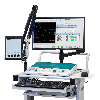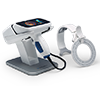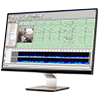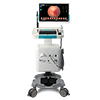We’re inspired by positive patient outcomes. Over more than 80 years we’ve delivered industry-leading technology, expert service, and specialized education to make a world of difference in the lives of care providers and their patients.
We put clinicians first in the consideration and development of each solution we provide. We deliver innovative and trusted solutions to screen, diagnose, and treat disorders affecting the brain, neural pathways and eight sensory nervous systems.
We are dedicated to providing unparalleled service to ensure a seamless experience, helping our partners to deliver the highest standard of care and achieve the best possible patient outcomes.
We are committed to helping healthcare providers worldwide feel confident they can achieve the best possible results. Natus Academies provide expert knowledge, clinical expertise and advanced education – whatever your role, wherever you work.
Neuro
UltraPro® S100 EMG/NCS/EP Neurodiagnostic System
Sensory
Otoscan® - 3D Ear Scanning Solution
Neuro
Natus® NeuroWorks® EEG Software
Sensory
RetCam Envision™ ophthalmic imaging system

Neuro
UltraPro® S100 EMG/NCS/EP Neurodiagnostic System

Sensory
Otoscan® - 3D Ear Scanning Solution

Neuro
Natus® NeuroWorks® EEG Software

Sensory
RetCam Envision™ ophthalmic imaging system